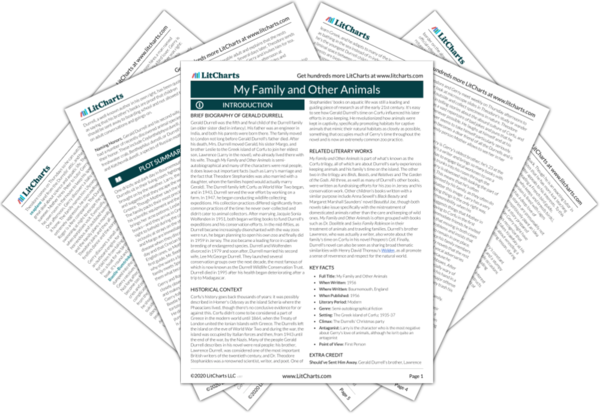The way that Mother problem-solves Dodo's dilemma shows that, like Gerry, she cares deeply for the animals in her care and wants them to be as comfortable as possible. Further, she's willing to go to ridiculous lengths when it's for the sake of the animals. Again, though Gerry's interests tend to be more exotic than Mother's, this suggests they're not so different.
